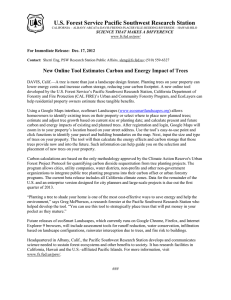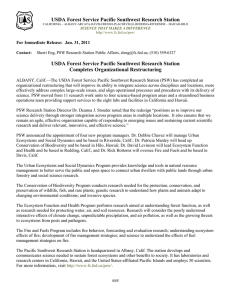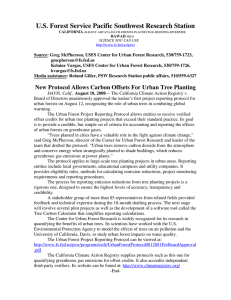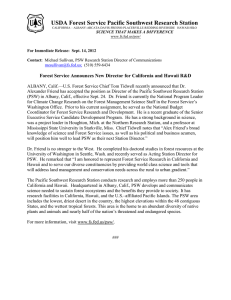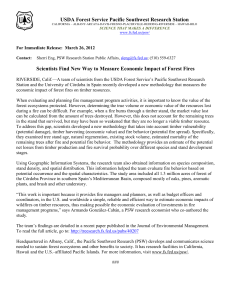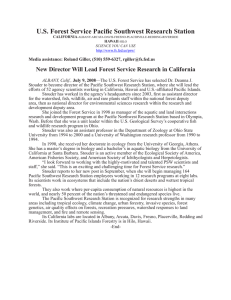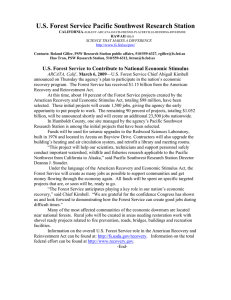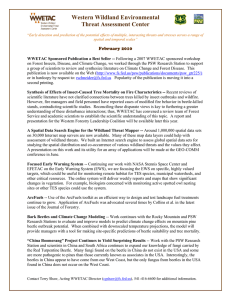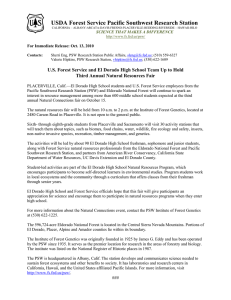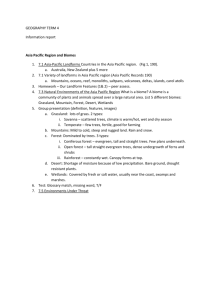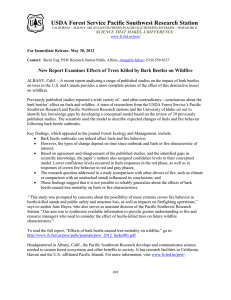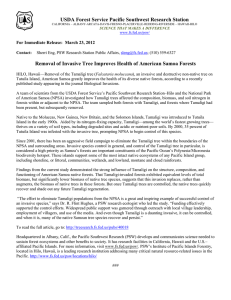USDA Forest Service Pacific Southwest Research Station Trees Pay Us Back
advertisement
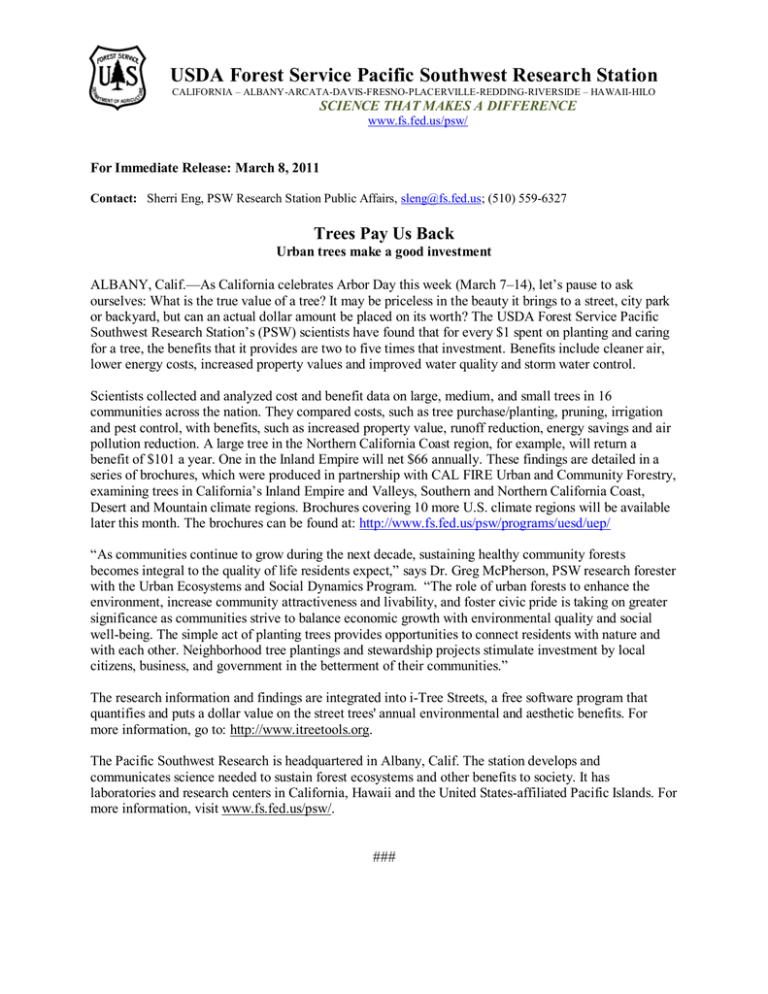
USDA Forest Service Pacific Southwest Research Station CALIFORNIA – ALBANY-ARCATA-DAVIS-FRESNO-PLACERVILLE-REDDING-RIVERSIDE – HAWAII-HILO SCIENCE THAT MAKES A DIFFERENCE www.fs.fed.us/psw/ For Immediate Release: March 8, 2011 Contact: Sherri Eng, PSW Research Station Public Affairs, sleng@fs.fed.us; (510) 559-6327 Trees Pay Us Back Urban trees make a good investment ALBANY, Calif.—As California celebrates Arbor Day this week (March 7–14), let’s pause to ask ourselves: What is the true value of a tree? It may be priceless in the beauty it brings to a street, city park or backyard, but can an actual dollar amount be placed on its worth? The USDA Forest Service Pacific Southwest Research Station’s (PSW) scientists have found that for every $1 spent on planting and caring for a tree, the benefits that it provides are two to five times that investment. Benefits include cleaner air, lower energy costs, increased property values and improved water quality and storm water control. Scientists collected and analyzed cost and benefit data on large, medium, and small trees in 16 communities across the nation. They compared costs, such as tree purchase/planting, pruning, irrigation and pest control, with benefits, such as increased property value, runoff reduction, energy savings and air pollution reduction. A large tree in the Northern California Coast region, for example, will return a benefit of $101 a year. One in the Inland Empire will net $66 annually. These findings are detailed in a series of brochures, which were produced in partnership with CAL FIRE Urban and Community Forestry, examining trees in California’s Inland Empire and Valleys, Southern and Northern California Coast, Desert and Mountain climate regions. Brochures covering 10 more U.S. climate regions will be available later this month. The brochures can be found at: http://www.fs.fed.us/psw/programs/uesd/uep/ ―As communities continue to grow during the next decade, sustaining healthy community forests becomes integral to the quality of life residents expect,‖ says Dr. Greg McPherson, PSW research forester with the Urban Ecosystems and Social Dynamics Program. ―The role of urban forests to enhance the environment, increase community attractiveness and livability, and foster civic pride is taking on greater significance as communities strive to balance economic growth with environmental quality and social well-being. The simple act of planting trees provides opportunities to connect residents with nature and with each other. Neighborhood tree plantings and stewardship projects stimulate investment by local citizens, business, and government in the betterment of their communities.‖ The research information and findings are integrated into i-Tree Streets, a free software program that quantifies and puts a dollar value on the street trees' annual environmental and aesthetic benefits. For more information, go to: http://www.itreetools.org. The Pacific Southwest Research is headquartered in Albany, Calif. The station develops and communicates science needed to sustain forest ecosystems and other benefits to society. It has laboratories and research centers in California, Hawaii and the United States-affiliated Pacific Islands. For more information, visit www.fs.fed.us/psw/. ###
